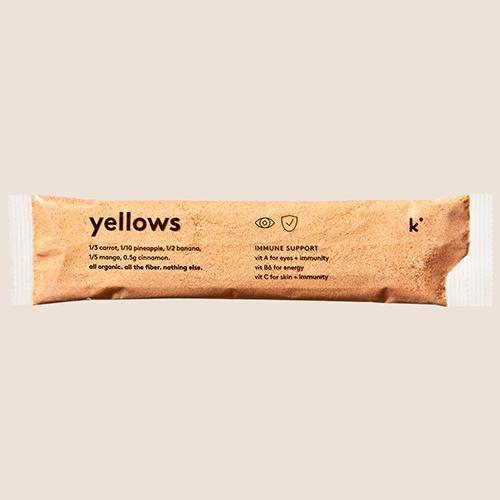What is lucuma?
Lucuma – “the gold of the Incas” – has for centuries been a natural remedy for various South American cultures. Let’s talk about lucuma, lucuma powder benefits, and more!
What is lucuma?
Lucuma is a fruit of many nicknames – in addition to “gold of the incas,” it’s also called lucmo or eggfruit – but it hails from South America and grows on the lucumo tree. It’s cultivated primarily in Chile, Peru, and Ecuador, and has a soft golden pulp, a dryer texture than most fruits, and a hard green outer shell that makes it look like a mix between a mango and an avocado.
Widely available fresh throughout South America, it can be found in other parts of the world more commonly frozen or as pulp at Latin food markets, or in dry, powder form at health food stores. This powder is made by dehydrating fresh lucuma and milling, which keeps most of its nutritional value intact, when stirred into food or drinks.
Lucuma’s sweetness is subtle, and pairs with a nice creamy flavor that’s reminiscent of maple syrup, butterscotch, or brown sugar.
How is lucuma usually consumed?
Now unless you have access to fresh lucuma, you’re probably curious about how to use lucuma powder.
It’s commonly used as a low-sugar sweetener, or sugar substitute. It’s incredibly versatile and pairs great with most fruits, caramel, chocolate, and just about any baked good you can imagine.
Plenty of people mix a little lucuma powder into beverages like coffee or tea, and it’s regularly used as a sweetener in commercial nut milks, or to sweeten smoothies. At home, it’s a great way to make overnight oats or chia pudding a tad sweeter, too. At kencko, we even use it in blushes!
What are the health benefits of lucuma?
So now that we’ve settled the score about lucuma’s sweetness factor, let’s dive into the nutritional benefits of it. Is lucuma merely a healthier substitute for sugar, or does it possess additional nutritional benefits, too?
It’s a nutritious sweetener
One tablespoon (7.5 grams) of lucuma powder contains about:
Calories:30
Protein:0 grams
Fat:0 grams
Carbs: 6 grams
Sugars: 1.5 grams
Fiber: 2 grams
That means it’s got less sugar than table sugar, as well as fewer carbohydrates, while packing in some good soluble and insoluble fiber – something most other sweeteners lack. Plus, a tablespoon of lucuma powder also contains a bit of calcium, iron, potassium, niacin, and vitamin C, even if not in great quantities.
Most notable, however, of lucuma’s benefits is the reaction your gut has to its soluble fiber. Soluble fiber feeds healthy gut bacteria, which in turn produce short-chain fatty acids, or SCFAs, like acetate, propionate, and butyrate. These SCFAs are used to fuel cells in your gut, keeping them healthy, while protecting against inflammation. This process may even improve symptoms of conditions like IBS, Crohn's disease, and ulcerative colitis.
It contains antioxidants
But the lucuma health benefits don’t stop there. It also contains a wide range of antioxidants, which help protect your cells from damage by free radicals. Diets high in antioxidants are linked to lowered risk of health conditions like heart disease and some cancers.
Research suggests that the polyphenols and carotenoids – both powerful antioxidants – are found in high quantities in lucuma. Xanthophylls, a group of carotenoids that give lucuma its yellow hue, are also thought to promote eye health. And polyphenols are believed to offer great protection against chronic ailments like diabetes and heart disease.
Then there’s vitamin C, which also possesses antioxidant properties. Lucuma has plenty of it, which means it’s good for immune and heart health.
It may help control blood sugar levels
But there are more health benefits of lucuma that might seem counterintuitive. Though it’s got plenty of carbohydrates, lucuma may actually help protect against type 2 diabetes.
That’s likely because those carbs are complex. Need a quick refresher on the types of carbs?
Sugars are short-chain carbs found in many foods Examples include glucose, fructose, and lactose. They're quickly and easily digested and can cause spikes in blood sugar.
Starches are longer chains of carbs. They take longer for your body to process and as a result, are less likely to spike blood sugar levels drastically.
Fiber is a type of nondigestible carb that's ultimately broken down and used as food by out gut biome. It helps maintain stable blood sugar levels.
Sugars are considered simple carbs and starches and fibers are considered complex carbs. Lucuma is primarily made of complex carbs, which have been shown to be a net positive on blood sugar levels.
Sugars are considered simple carbs, while starches and fiber are thought of as complex. Complex carbs, such as the starches and fiber making up most of the carbs in lucuma, have been shown to promote healthy blood sugar levels. Lucuma’s soluble fiber may improve insulin sensitivity and prevent blood sugar spiking after a meal, to the point that test-tube research has shown the blood sugar-lowering mechanisms of lucuma might be on par with those of some synthetic antidiabetic drugs.
It does this through stopping the action of the alpha-glucosidase enzyme, which usually breaks down complex carbs into more quickly digested sugars. Additionally lucuma is often considered to have a low glycemic index, although this hasn’t been corroborated through studies.
It may support heart health
And if you needed any more lucuma benefits in order to consider trying this fruit out in place of your current go-to, we’ll close with how it may support heart health.
Due to its polyphenol content, lucuma may protect against high blood pressure and heart disease. One test-tube study discovered that lucuma may prevent the angiotensin I-converting enzyme (ACE) from acting, which helps with blood pressure regulation. Further studies are needed to confirm these benefits, however.
there's more good content where that came from
